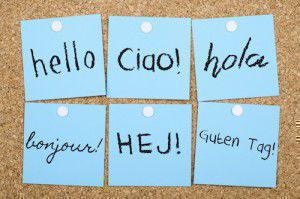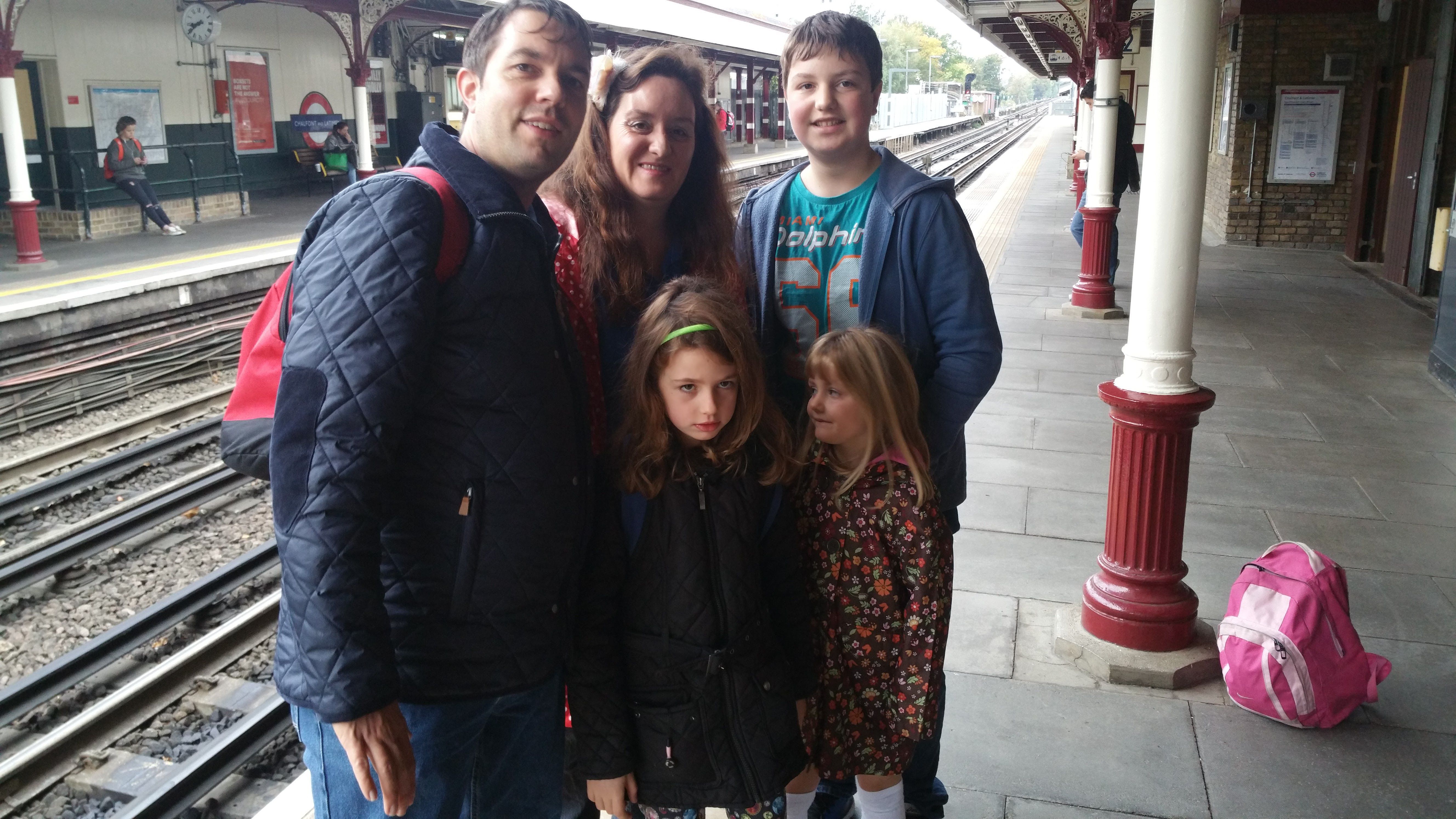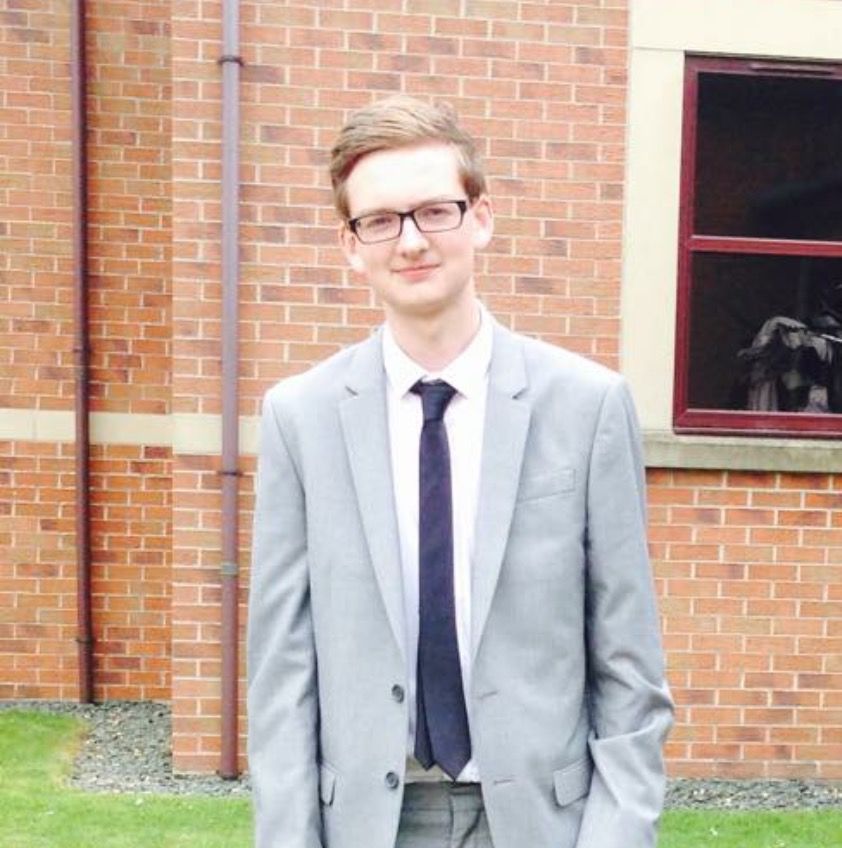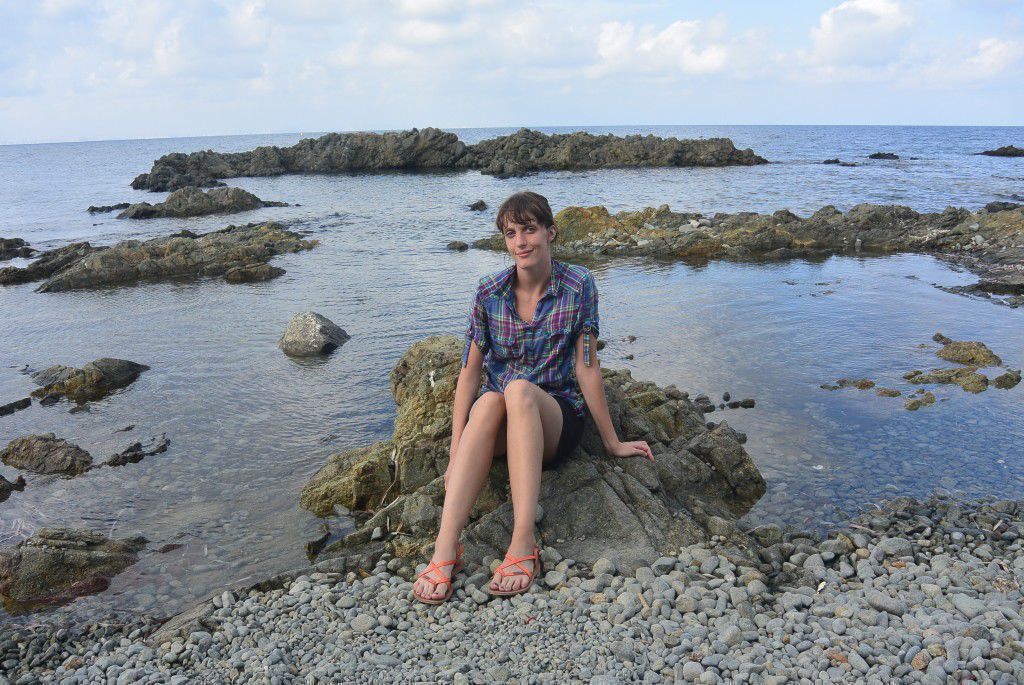Are you ever too old to learn a language?
As a small child, I was practically a real-life Harry Potter. Without the magic. Or the mean Aunt and Uncle. Okay, well really, the only similarity is that I spent a lot of my days in the cupboard under the stairs. Now, before you call the authorities, don’t worry. It was my favourite place! I had a comfy chair and my own TV and all the VHS tapes of awful 90s cartoons that a toddler could ever ask for!
 Why is this relevant to EuroTalk I hear you ask?! Well, it was here, sat watching Tots TV, that I accidentally taught myself French! My parents had no idea, until one day I casually said to my Mum ‘Bonjour, Je m’appelle Codie! That means “Hello, my name is Codie”, Mummy!’. She was in shock. After all, what would you think if your three year old daughter started spouting French? Once I’d explained that I got it from Tilly (sorry to anyone born too early/late to understand the references here, YouTube it!), I was inundated with French books, tapes and excited relatives. Even the nurse at our local GP practice heard about my weird knowledge and insisted on making me count to ten in French whilst she gave me my injections. I was essentially a performing monkey – but I loved it!
Why is this relevant to EuroTalk I hear you ask?! Well, it was here, sat watching Tots TV, that I accidentally taught myself French! My parents had no idea, until one day I casually said to my Mum ‘Bonjour, Je m’appelle Codie! That means “Hello, my name is Codie”, Mummy!’. She was in shock. After all, what would you think if your three year old daughter started spouting French? Once I’d explained that I got it from Tilly (sorry to anyone born too early/late to understand the references here, YouTube it!), I was inundated with French books, tapes and excited relatives. Even the nurse at our local GP practice heard about my weird knowledge and insisted on making me count to ten in French whilst she gave me my injections. I was essentially a performing monkey – but I loved it!
Fast-forward a few years later and I’m in the second half of Primary School. We have a super cool substitute teacher who plays guitar and teaches us German. It takes him less than half an hour to teach an entire class of children to count to ten in German and 15 or so years later I still know it.
Fast-forward a few years even later and my adorable four year old nephew is counting to ten in Japanese! Something they learn at pre-school through the use of cute mnemonic devices (with even cuter actions!). Languages are being taught younger and younger and suddenly, my toddler French seems a whole lot less impressive.
 So that leads me to wonder, am I too old to learn a language? I’m led to believe that the older you are, the harder it is to learn an instrument (well, at least I can sort of play the recorder, right?), so does this apply for other skills? I can’t do a cartwheel, so I figure that boat has sailed, but I did recently learn how to knit… badly. Do different things have different cut off points? As knitting is usually for old ladies, was I only able to learn it because I’m cracking on a bit now? (Maybe a slight exaggeration, I am only 23 after all.) Most importantly am I the right age to finally start learning a language? As I’m currently childless, I know it’s my biological clock I should be worried about, but I genuinely think it is being drowned out by the voice in my head that is yelling ‘What happened to the girl who was learning French before she could tie her shoes? What are you doing with your life?!’.
So that leads me to wonder, am I too old to learn a language? I’m led to believe that the older you are, the harder it is to learn an instrument (well, at least I can sort of play the recorder, right?), so does this apply for other skills? I can’t do a cartwheel, so I figure that boat has sailed, but I did recently learn how to knit… badly. Do different things have different cut off points? As knitting is usually for old ladies, was I only able to learn it because I’m cracking on a bit now? (Maybe a slight exaggeration, I am only 23 after all.) Most importantly am I the right age to finally start learning a language? As I’m currently childless, I know it’s my biological clock I should be worried about, but I genuinely think it is being drowned out by the voice in my head that is yelling ‘What happened to the girl who was learning French before she could tie her shoes? What are you doing with your life?!’.
And that, my friends, is the existential crisis that has inspired me to try and learn Japanese, with the help of EuroTalk. Maybe I’ll shut myself in the cupboard under the stairs for old times’ sake!
Codiekinz is a twenty-something blogger from the South, currently masquerading as a Northerner. She makes YouTube videos and posts about life, books, travel and her bearded dragon, over at www.codiekinz.co.uk. She’ll also be using uTalk to learn Japanese, so keep an eye on her blog for updates!
You can also follow her on Twitter @CodieKinz
Photo credit: codiekinz.co.uk
A Language Journey
Today we’ve got a fantastic guest post from Kelly Wang – English teacher, accidental traveller, cake whisperer, dinosaur believer – on her personal language learning journey.
If you’ve got a language story to tell, we’d love to hear it! Now over to you, Kelly…
My journey through languages began in sequins and shoulder pads.
At the age of seven I remember clutching a Pot Noodle (Chow Mein flavour, if you must know), with an A4 pad in front of me and one of those 10 coloured pens ready and poised, waiting for the Eurovision Song Contest.
It has long been a tradition in my family to watch the Eurovision together, and to give marks out of ten to the acts. And at that age, I was of the opinion that English was the only language in the world, so my marking scheme would include whether or not the songs were in English. No English? Nil points.
I even took exception to the fact that each country when giving their own points spoke in their own language. How rude.
Fast forward to the last year of primary school and we learnt a few French words like bonjour and le livre and la fenêtre.
I still thought English was the best language.
But then, on reaching secondary school, when we started to learn a ‘modern foreign language’ regularly (in my case, French), I loved it. I loved the idea of being able to speak to everyone, no matter the language. And better than that, I was picking it up pretty easily.
The following year there was a repeat performance with learning German, and I remember a sort of teenage arrogance of thinking that languages were going to be ‘my thing’, because by the time I was sixteen I could also say Θέλω να πάω σπίτι in Greek – Thélo̱ na páo̱ spíti (I want to go home).
Over the years I’ve flirted with a lot of languages. I tried Chinese for a while, but with the complicated tonation, I was more worried about causing offence with the way I said a word, and less worried about actually stringing a sentence together.
And then, I found my true language love. The one language I could lose myself in and spend hours learning just for fun. The one language I would squeal over if I heard it spoken in public. Which is Finnish. Naturally.
Finnish may sound like an odd choice, but it made perfect sense to me. What started with a passing interest listening to Finnish metal music erupted into a bit of an obsession when I found myself frustrated that I couldn’t understand the Finnish ice hockey commentary.
For almost two years, Finnish became my number one hobby. Being relatively self-disciplined when it comes to studies, I decided to learn through a mix of self study and online language exchanges. Many an adventure was had along the way, and that perhaps is a story for another time, but I loved it. No prepositions to learn because everything was a suffix, and by changing the word ending you could say a whole range of things about it: saunassa, saunasta, saunan (in the sauna, from the sauna, for the sauna). No articles, no need to wonder if your table was a girl and your chair was a boy, it didn’t matter. Neither did you have to refer to a person as he or she, one simple han and it was covered! Beautiful.
Fast forward another year, and I found myself attempting to get to grips with Hungarian. Now for those of you who don’t know, Finnish and Hungarian are cousins of the language world, and it depends on which scholar you speak to as to how close a family they are. My experience was that whilst it sounded an awful lot like Finnish, Hungarian was nothing like it at all, except for the odd words like toilet: Hungarian – vécé, Finnish vessa.
And currently, I find myself in Spain. Adamantly not learning the language.
Because the problem now, with being a ‘jack of all trades, master of none’ when it comes to language, is that they all get tangled up. A waiter asks me if I want a refill, I answer in a mix of Spanish and Hungarian. I overhear staff in my local Chinese supermarket and confuse them – and myself – by responding in Chinese rather than Spanish. And recently on a stopover in Paris, I managed to respond to questions in French but found myself asking questions in Finnish.
What I really could do with is a babel fish. Or to live in the TARDIS. Unfortunately, I am in the wrong reality for that. But. I still love languages.
So. I don’t know what the foreign language for me is going to be. Should I return to French, attempt to master Finnish, or take up something new like Dothraki? Or will that lead to more unnecessary tongue twisting? I just don’t know. Would you like to join me on my journey?
Kelly





